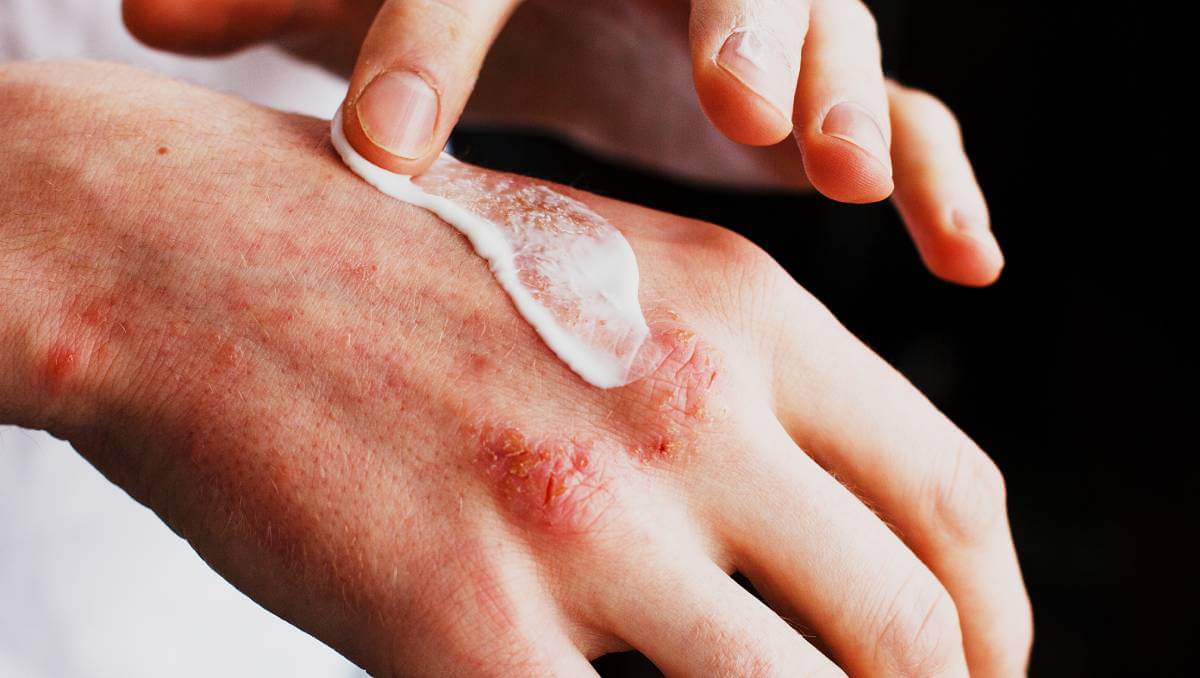Eczema is a relatively common condition affecting the skin. And the fact that it is so common might be one reason that it’s an easily dismissed disease. Now, Eczema Support Australia (ECA) is calling for a greater focus on the ailment, which causes pain and distress for many.
For those who’ve never suffered from eczema it can be an easy condition to brush off. A bit of dry and itchy skin – that’s no big deal, surely? In fact, for chronic sufferers, it is indeed a big deal; it can be debilitating.
Some of the more hardhearted among us might still not be moved to sympathy by such suffering. For them, the next part of the equation might resonate: eczema costs the Australian economy $4 billion a year.
The distress in personal and financial terms is the subject of a newly released report calling for a change of approach. The Burden of Eczema – Evidence for a National Strategy reveals the extent of the suffering caused by the condition.
The report, released this week, also calls for the development of a national strategy to improve the treatment options, described by ECA as “a maze”.
The raw data revealed in the report is startling. First, three million Australians suffer from eczema, and a high proportion of those are children. One in every Australian child aged six or under has the condition. For many, it is characterised not just by a minor itch, but by severe pain, distress and sleep disruption.
Second, the report reveals that adults with eczema are three times more likely to suffer depression than those without the condition. Disturbingly, more than one in five adults with eczema consider suicide. Despite that, only 3 per cent of affected adults reported receiving information about psychological help from their GP.
Causes and treatments of eczema
One of the challenges in treating and managing eczema is that no-one knows exactly what causes it. We do know that it can run in families, and those with the condition can also have other allergic conditions.
There are also a number of triggers that can exacerbate the condition. These include chemicals, artificial colours, preservatives, perfumes or soap, sand, carpet, woollen or prickly fabrics, viral infections and heat. Another potential trigger is high stress levels.
Part of the management strategy for sufferers is identifying their own triggers and avoiding them where possible.
While there is no cure, a number of eczema treatments are available – for instance, prescribed creams, some of which are steroid-based, and antihistamines to control itching. Antibiotics are also used where the condition is infection-related.
What does the ECA want?
Eczema Support Australia managing director Melanie Funk wants the report to “act as an SOS call to government”. Ms Funk says there’s a “need to establish a National Eczema Strategy to urgently address the suboptimal treatment of eczema”.
The ECA report maps out a 10-step national pathway:
- standardise care to end treatment maze
- address steroid phobia, which leads to eczema flare-ups
- prevent hospitalisation and manage co-morbidities
- ensure equitable access to treatment
- increase health literacy through patent education and support
- end isolation via government funding to Eczema Support Australia
- bolster dermatology training for GPs, nurses and Aboriginal health workers
- improve the transition of care from paediatric and adolescent to adult care
- address a shortage of dermatologists; currently there is only one specialist for every 50,000 Australians with eczema
- establish an eczema registry to collect reliable data.
Ms Funk advocates urgent action on a national scale. “We desperately need a National Eczema Strategy … to improve the lives of those struggling with … eczema,” she said. These include “sleep deprivation, anxiety, depression, headaches, and thousands of dollars of out-of-pocket costs from managing the condition”.
A summary of the ECA’s recommendations and the full report are available on the ECA website.
Do you or a close family member suffer from eczema? Do you advocate further support? Let us know in the comments section below.
Also read: How to strengthen your skin barrier for a healthy complexion
Disclaimer: This article contains general information about health issues and is not advice. For health advice, consult your medical practitioner.


Sorry, first comment is someone pedantic about grammar and spelling … I will just mention the worst two cases that need a simple correction.
1. “One in every Australian child aged six or under has the condition.”
There maybe a number omitted here, or perhaps they *do* mean every child …
2. “increase health literacy through patent education and support” – Is there an intellectual property or copyright issue. Or perhaps the author meant PATIENT.
Feel free to remove this comment once corrections are made.
YLC has still not corrected their article – 9th September at 4 pm
I have 2 grandchildren (8 & 3) who suffer from eczema, prescription creams are not helping.